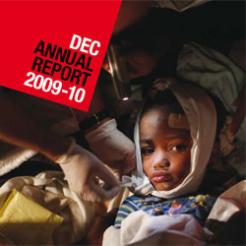Organisations involved in delivering aid and development overseas appear to be holding their ground in the fragile economic climate, while arts and culture groups are struggling, according to the annual ranking reshuffle of the UK’s largest 100 charities.
The annual constituent review of the Charity 100 Index finds five new entrants and five exits, but no change in the top five.
The Index is produced by Charity Finance and tracks the income performance of the largest 100 charities since 1996. The figure applied to each charity to determine their position in the Index is a rolling average of its income for the last three years, to correct any one-off spikes or dips that might otherwise skew the results.
The results show that the aggregated income of Charity 100 Index members stands at £11.4bn, up by £355.5m on last year, and that following a dip in 2009, the Index has recovered to an all-time high.
The income requirement to qualify for the Index has increased by 8 per cent from £45.8m to £49.7m.
At the top of the table, Nuffield Health, Cancer Research UK and the National Trust have maintained their top-three positions, with Nuffield claiming number one for the eighth successive year.
Impressive progress has been made by Crime Reduction Initiatives (CRI), which enters the Charity 100 Index for the first time having grown annual income by 20 per cent last year, on top of 35 per cent growth the year before.
Income growth at Nursing and Midwifery Council, Merlin, and Disasters Emergency Committee (pictured) has seen them all enter the 100 Index for the first time.
The fifth and final new member this year is Turning Point, which enters at position 55, although this is based on a revision of membership criteria rather than income growth.
Also noteworthy is the performance of Alternative Futures, UK Committee for Unicef, and Islamic Relief Worldwide, which have risen by 24, 17 and 15 places respectively.
The charities that have dropped out of the Charity 100 Index are the Royal College of Nursing, because it ceased to be a charity; the Southbank Centre; the Society for Jesus Trust 1929 for Roman Catholic Purposes; Action on Hearing Loss, and the National Trust Scotland.
Three of these four all recorded falls in their three-year average income but National Trust for Scotland has fallen out despite seeing its average income grow. It has been relegated because other charities have grown faster. The four will assume new positions in the Charity 250 Index, which looks at the 250 largest charities after the top 100. It will be published next month.
Turning Point: 'Index confers credibility'
Regarding Turning Point’s admission to the Index, the charity’s financial controller Carolyn Kell said: “Turning Point’s status as a registered provider relates to grants it received from the former Housing Corporation to buy or refurbish homes to be used as residential care services in the 80s and 90s. The Tenant Services Authority has long recognised that the income Turning Point generates from letting is a small proportion of the overall revenue related to its commitment to improving the lives of people with complex needs.”
She added that it was important for Turning Point to appear in the Charity Index, as it confers credibility amongst service delivery commissioners. “It promotes us as a big national charity and gives local authorities and PCTs confidence that we can help them meet their health and social care needs.
“Being in the Index raises our profile so they can see we are a strong contender in our industry.”
For the full analysis of the Charity 100 Index, click here.










